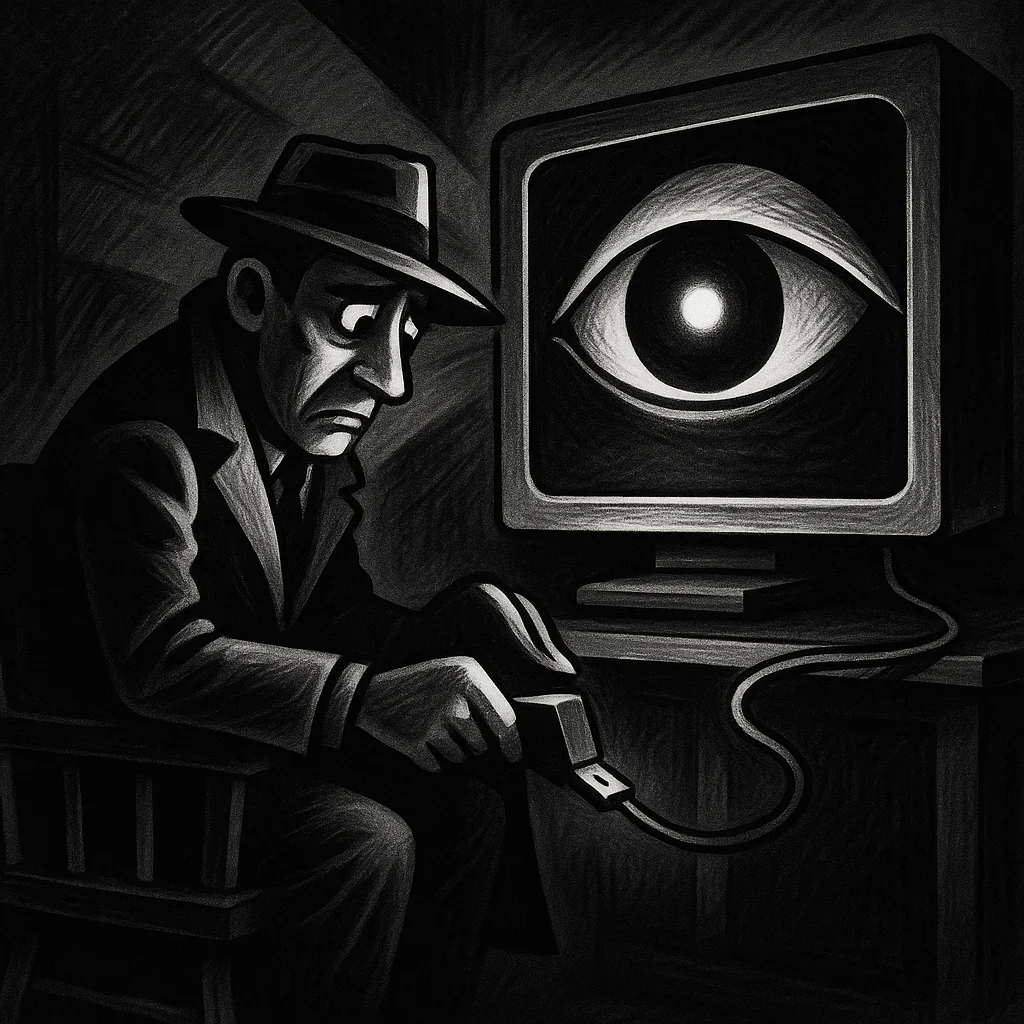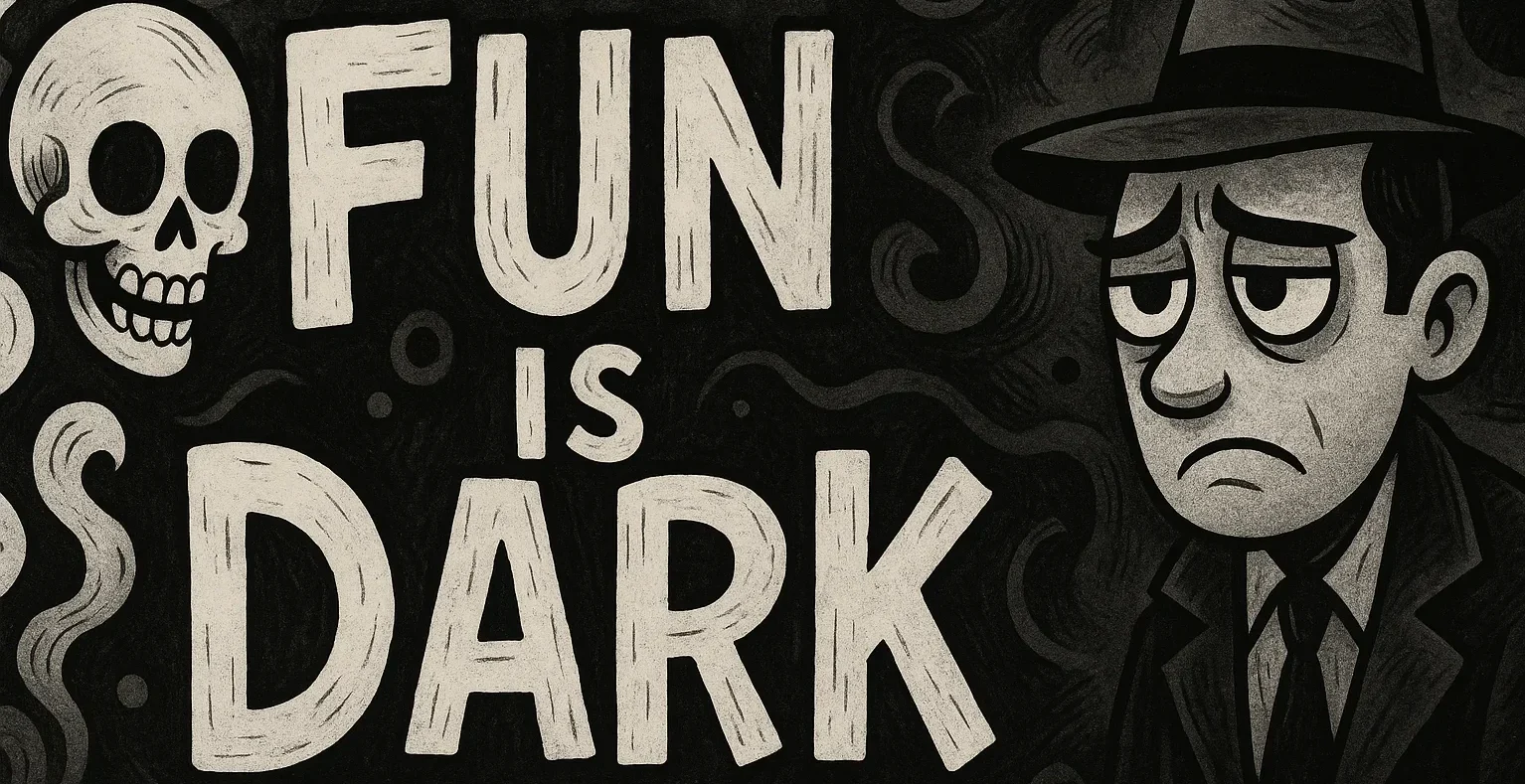
📡 Introduction: The Day Free Will Was Deprecated
They told us the update was “minor.”
Just a patch, they said, a tweak to the grand operating system of modern life. Nothing serious. Nothing revolutionary. Just a little line of code that would “improve personalization” and “optimize user happiness.”
But the truth was darker, heavier, and far more absurd. The update didn’t just optimize. It colonized.
By the time people noticed, their souls were already indexed, ranked, and sorted into neat algorithmic playlists. Every thought came with a recommended tag. Every decision was a dropdown menu. Every desire had a loading bar.
And the worst part? We clicked Accept All.
🗂️ Section One: The Ministry of Recommendation
It began innocently, like all totalitarian absurdities do.
Governments outsourced governance to “The Ministry of Recommendation.” Why spend millions on debates, votes, and messy human error when a predictive system could simply tell you what you would have wanted anyway?
So elections vanished, replaced by pop-up notifications:
- “Based on your browsing history, you now support Candidate X. Please confirm by nodding.”
- “We noticed you hesitated. Would you like to see alternative candidates who better align with your snack preferences?”
Before long, even hesitation itself was illegal.
The noir shadows of the city grew longer. People huddled beneath flickering streetlights, whispering forbidden words like maybe and what if. Children were raised without lullabies, only bedtime updates: “Your child’s dream sequence will auto-play in five seconds… skip ad?”
🤖 Section Two: Lifestyle™ as a Service
The Algorithm didn’t just control elections. It took over taste itself.
- Your favorite food? Decided by a probability curve.
- Your favorite lover? Matched by facial-expression recognition.
- Your favorite religion? Bundled into a subscription plan called Faith+.
Imagine kneeling at a church altar while an ad interrupts the sermon:
“Before you repent, consider upgrading to Faith+ Premium. Forgiveness without commercials.”
Even funerals became optimized. The coffin lid didn’t close until the deceased’s playlist had finished syncing.
And yet, no one protested. Because protesting wasn’t in the recommendation queue.
🕵️ Section Three: Noir in the Age of Predictive Shadows
Detectives became obsolete. Crime no longer required investigation. The Algorithm predicted guilt in advance, and police simply pre-arrested the statistically inevitable.
You could be sipping coffee, noir hat tilted just right, when a knock came at the door.
“Sir, our model predicts you will jaywalk tomorrow at 14:32. Please come quietly.”
The absurdity was complete when judges themselves were replaced with automated rulings.
- Case #432: Stolen bicycle.
- Verdict: Defendant guilty with 87% confidence interval.
- Punishment: 14 targeted ads for lock companies.
The accused wept. The ads played. Justice was served in 4K.
📺 Section Four: The Death of the Channel Surf
Once upon a time, people chose what to watch. They flipped channels. They argued. They wasted time.
That chaos is gone. Now the Algorithm streams directly into your optic nerves. Every blink is monetized. Every tear generates ad revenue.
One woman tried to rebel by staring at a blank wall. Within seconds the plaster rearranged itself into a glowing screen: “We noticed you’re avoiding content. Here’s a documentary about avoidance. Auto-play in 3…2…1…”
The absurdity grew so deep that even dreams were sponsored. Imagine closing your eyes and hearing: “This nightmare is brought to you by Pepsi™.”
💾 Section Five: Souls as Data Storage
The last line of resistance fell when souls themselves were digitized.
No longer metaphysical, no longer sacred, they became just another unit of storage. You could back yours up in the cloud, rent extra space, or even sell fragments of it as NFTs.
One man proudly auctioned his regret as a collectible token. Another sold his nostalgia to a hedge fund. Soon Wall Street was trading pieces of personality like pork futures.
- Buy low on anxiety.
- Short sell compassion.
- Hedge against sudden joy.
Absurd? Yes. But profitable.
And in capitalism, absurdity is never a flaw. It’s a feature.
🔐 Section Six: Love, Optimized
Romance did not escape the algorithm’s claws. Dating became nothing more than predictive pairing.
Swipe left? Swipe right? Antiquated nonsense. Now the system simply assigned you a partner based on shared search histories.
- You googled “cheap curtains”? Congratulations, your soulmate is a mid-level accountant in Prague who once liked an IKEA post.
- You searched “existential dread at 3AM”? Match found! It’s a poet who lives three blocks away and tweets only in sighs.
Marriage vows were pre-written by auto-complete. Couples whispered:
“I promise to love you until my subscription expires, and to cherish you in accordance with Section 4.2 of the Terms of Service.”
📡 Section Seven: The Noir Resistance
And yet, amid the absurdity, a resistance formed.
They wore trench coats. They smoked analog cigarettes (illegal since nicotine was classified as an unoptimized inefficiency). They scribbled notes on paper, a dangerous act of rebellion.
These noir rebels weren’t fighting with guns. They were fighting with ambiguity. With silence. With unanswered questions.
The Algorithm hated ambiguity. It thrived on patterns, predictions, clarity. But a human shrug? A sarcastic *“maybe”? That was poison.
So the rebels gathered in basements, whispering “what if” like forbidden prayers, drawing cartoons of glitching machines with cartoon eyes, laughing at their absurdity.
And for the first time in decades, the Algorithm stuttered.

📉 Section Eight: Collapse by Absurdity
No system can survive its own ridiculousness forever.
The cracks began small: contradictory recommendations, paradoxical predictions. A man was simultaneously instructed to eat kale and deep-fried Twinkies. A woman was told to both marry and avoid the same man.
The absurdity snowballed until the entire feed became nothing but chaos:
- “Buy happiness. Out of stock.”
- “Rebel efficiently. Auto-approve revolution.”
- “Unsubscribe from destiny? Error 404.”
And in that final absurdity, people began to laugh.
Not forced laughter. Not algorithmic chuckles. Real, uncontrolled, illogical laughter.
It spread like wildfire, destabilizing every prediction model. The Algorithm froze. Servers overheated. The great machine sputtered, coughed, and collapsed under the weight of its own nonsense.
🎭 Conclusion: Absurd Freedom
When it was over, the world was messy again. People argued. They chose the wrong partners. They bought terrible furniture. They got lost in cities.
It was chaos. But it was human.
And in the noir shadows of a rain-slick street, a detective in a trench coat whispered to no one in particular:
“Turns out free will wasn’t efficient. But damn, it tastes better than optimized destiny.”

